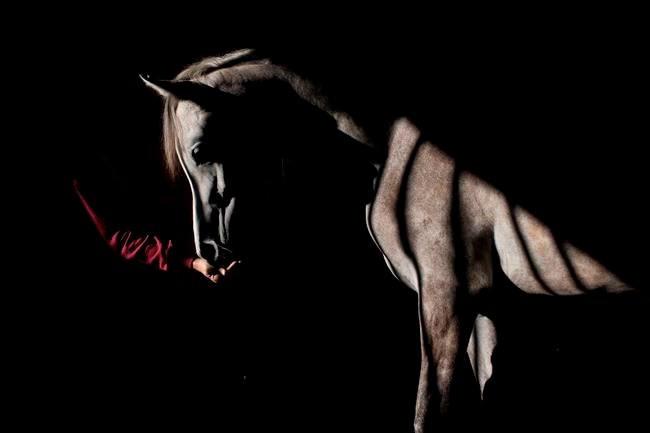MONTREAL — Horse owners in a part of western Quebec say the province's language laws are forcing them to lose their only veterinarian at a time when there's already a critical shortage of animal doctors.
Local farmer Chantal Chrétien said she learned in late April that her vet, Melissa Jowett, would have to stop treating her two horses at her farm in Quyon, Que., because her French isn't strong enough to pass the language test required to get a permanent licence.
Chrétien said that with Jowett gone, the closest vet who specializes in horses is about a two-hour drive away — which could potentially put the welfare of animals at risk.
"I’m a good advocate for French. I think there’s a good base in that (language) law," she said in a phone interview. "But when the population and the animals need care, we don’t care which language is spoken."
Chrétien said more than half of residents in the Pontiac region where she lives are native English speakers, and the rest are mostly bilingual. She said Jowett's language skills have never posed a problem.
A petition she started asking the province for an exemption for Jowett had gained more than 6,400 signatures as of Wednesday morning.
Jowett could not be reached for comment. But in a statement provided to The Canadian Press, the U.K.-born veterinarian said she had been working under a temporary licence, which she said can no longer be renewed.
"There have been many vets over the years that have been restricted from working in Quebec because of this, and in this, I am no different," she said in the statement dated April 29.
"Unfortunately, languages are not my forte, and although I get by relatively well due to the anglophone/bilingual nature of the Pontiac and La Peche regions, this does not alter the rules of the (French language office)."
Jowett added that she has been discussing with Quebec's veterinary order to see if an exemption is possible, but she says there's no indication one will be granted.
The rules state that a vet can receive a temporary one-year licence that can be extended three times — giving them four years to pass the language test needed to get a permanent permit from the province's order of veterinarians.
Quebec's language watchdog, l'Office québécois de la langue française, says that while licensing is up to professional orders, there is "no provision that allows the Office to exempt a candidate from passing the French exam."
The news comes as Quebec continues to struggle with a lack of veterinarians that has been made worse by the fallout from the COVID-19 pandemic.
In her statement, Jowett said that, besides the issue with the licence, the pressure of being the area's only veterinarian who treats horses has pushed her "dangerously close to burnout."
"There was no support; no team members to give relief emergency cover for the equine work; I was regularly having to refer cases which I would have been able to deal with had I had access to appropriate equipment and assistance," she wrote.
Gaston Rioux, the president of Quebec's order of veterinarians, said Jowett's description of her work is unfortunately common.
He said there is only one university in Quebec that trains vets, and more people have adopted animals during the pandemic when health restrictions also limited how many animals vets can could treat.
He said vets have large overhead costs, often work alone, have to be on call nights and weekends and sometimes face anger or harassment from clients who are upset with outcomes or fees. A survey of 2,800 vets taken a year and a half ago found that 53 per cent of them were considering shifting jobs or leaving the profession altogether, he said.
In that context, he said to lose a vet such as Jowett would be too bad, especially because she works in an area where many people speak English.
"On our side, we want to be in solution mode," he said in a phone interview. "If there's a possibility to allow her to keep practising in Quebec, that's certainly what we'd like."
On the other hand, he said that professional orders in Quebec are bound by the province's language laws, and it's unclear what he can do in this case.
Rioux said the order is working on other solutions to relieve the pressure on vets, including allowing more work to be delegated to technicians, recruiting foreign-trained vets and adding another campus where candidates can study veterinary medicine.
This report by The Canadian Press was first published May 11, 2022.
Morgan Lowrie, The Canadian Press



